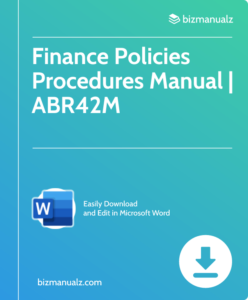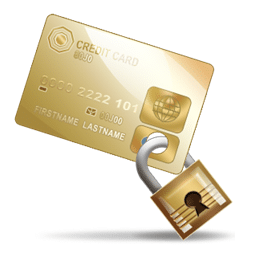How to Avoid Bad Debt and Secure Your Financial Future

Financial well-being is a cornerstone of a healthy and happy life. However, it is easy to fall into the trap of bad debt, causing long-term financial stress and an uncertain future. In this article, we’ll explore various types of bad debt, how to avoid them, and how to manage existing bad debt. We’ll also look at building good credit habits and strategies for creating a secure financial future. Learn how to avoid bad debt and secure your financial future.
Understanding Bad Debt
Bad debt is any debt that is unlikely to be repaid and can have long-term negative consequences on your financial health. Let’s take a closer look at some of the definitions and types of bad debt.
Bad debt can be a significant burden on your financial health. It can lead to high levels of stress and anxiety, as well as a feeling of hopelessness. Understanding what bad debt is and how it can impact your financial health is crucial to avoiding it.
Definition of Bad Debt
Bad debt is any debt that is not being paid in accordance with the agreed terms or is unlikely to be repaid in full. This can include credit card debt, unpaid bills, and defaulted loans.
It’s important to note that bad debt is different from good debt. Good debt is debt that is taken on for an investment that will appreciate in value over time, such as a mortgage or student loans. Bad debt, on the other hand, is debt that is taken on for items that will not appreciate in value, such as a vacation or luxury items.
Types of Bad Debt

There are many types of bad debt, including credit card debt, payday loans, and title loans. It’s important to understand the risks associated with each type to avoid falling into a debt trap. For example, payday loans have extremely high-interest rates and can be difficult to pay back, leading to a cycle of debt.
Credit card debt is one of the most common types of bad debt. It’s easy to accumulate and can quickly spiral out of control if not managed properly. Many people fall into the trap of only paying the minimum payment each month, which can result in high-interest charges and a longer repayment period.
Another type of bad debt is title loans. These are loans that are secured by the borrower’s vehicle. While they may seem like an easy way to get cash quickly, they often come with high-interest rates and can result in the borrower losing their vehicle if they are unable to make payments.
The Impact of Bad Debt on Your Financial Health
The impact of bad debt on your financial health cannot be overstated. It can negatively affect your credit score, making it harder to get approved for loans and mortgages. It can also lead to collection calls, legal action, and bankruptcy.
When you have bad debt, it can be difficult to focus on anything else. You may feel like you’re drowning in debt and unable to see a way out. However, there are steps you can take to improve your financial health and get back on track.
One of the first steps is to create a budget and stick to it. This will help you identify areas where you can cut back on expenses and free up money to pay down your debt. You may also want to consider debt consolidation or a debt management plan to help you get a handle on your debt.
Remember, bad debt is not a life sentence. With the right tools and strategies, you can overcome it and achieve financial freedom.
Strategies for Avoiding Bad Debt
Now that we’ve explored what bad debt is and how it can negatively affect your financial health, let’s take a look at how to avoid it altogether.
Creating a Budget
One of the most important steps you can take to avoid bad debt is to create a budget and stick to it. This will help you understand your income, expenses, and discretionary spending. By tracking your spending, you can identify areas where you can cut back and redirect that money toward your debt.
When creating your budget, it’s important to be realistic about your expenses. Don’t underestimate how much you spend on groceries, gas, or other necessities. It’s also important to include a category for savings, whether it’s for an emergency fund or long-term goals like buying a house or retiring.
Remember, creating a budget is just the first step. It’s important to regularly review and adjust your budget as your income and expenses change.
Building an Emergency Fund
Another important step is to build an emergency fund. This will give you a safety net in case of unexpected expenses, such as car repairs or medical bills. By having an emergency fund, you can avoid having to use credit cards or other forms of debt to cover these expenses.
Experts recommend having at least three to six months’ worth of living expenses in your emergency fund. This may seem like a daunting task, but you can start small by setting aside a portion of each paycheck until you reach your goal.
Using Credit Wisely
If you do use credit, it is important to use it responsibly. This means only using credit when necessary and paying off the balance in full each month. It’s also important to avoid using your credit card to fund a lifestyle that you cannot afford.
When choosing a credit card, look for one with a low interest rate and no annual fees. It’s also a good idea to monitor your credit score regularly to ensure that it stays in good standing.
Prioritizing Debt Repayment
If you do have debt, it’s important to prioritize high-interest debt and pay it off as quickly as possible. By doing this, you’ll avoid accruing more interest and paying more over time. It’s also important to avoid taking on new debt while paying off existing debt.
One strategy for paying off debt is the debt snowball method. This involves paying off your smallest debt first, then using the money you were paying on that debt to pay off the next smallest debt, and so on. Another strategy is the debt avalanche method, which involves paying off your highest interest debt first.
Remember, paying off debt takes time and discipline. It’s important to stay motivated and celebrate small victories along the way.
Identifying and Managing Existing Bad Debt
If you’re already in debt, don’t panic. There are steps you can take to manage your existing debt. It’s important to remember that you’re not alone, and there are resources available to help you get back on track.
Assessing Your Current Debt Situation
The first step in managing existing debt is to assess your current situation. This means understanding how much you owe, to whom, and the terms of the debt. You can start by gathering all of your bills and statements and creating a list of your debts. Once you have a clear picture of your debt, you’ll be able to develop a plan for paying it off.
It’s important to prioritize your debts based on interest rates and payment deadlines. This will help you focus your efforts and make the most progress in paying off your debt.
Consolidating and Refinancing Options
One option for managing existing debt is to consolidate or refinance it. This means taking out a new loan to pay off your existing debt. This can be a good option if you can get a lower interest rate or a longer repayment term, making it easier to pay off the debt over time.
There are a variety of consolidation and refinancing options available, including personal loans, home equity loans, and balance transfer credit cards. It’s important to do your research and compare the terms and fees of each option before making a decision.
Negotiating with Creditors
Another option is to negotiate with your creditors. This can mean working out a payment plan or negotiating a lower interest rate. It’s important to be honest and upfront with your creditors and only promise what you know you can deliver.
Many creditors are willing to work with you to find a solution that works for both parties. It’s important to be proactive and reach out to your creditors as soon as you realize you’re having trouble making payments.
Seeking Professional Help
If you’re struggling to manage your debt on your own, it may be time to seek professional help. This can mean working with a credit counselor or debt settlement company. These professionals can help you develop a plan for paying off your debt and navigating the various options available.
It’s important to do your research and choose a reputable professional to work with. Be wary of companies that promise to eliminate your debt quickly or for a very low fee. These companies may not have your best interests in mind and could end up making your financial situation worse.
Remember, managing existing debt takes time and effort, but it’s worth it in the long run. By taking steps to pay off your debt and improve your credit score, you’ll be setting yourself up for a more secure financial future.
Building Good Credit Habits
Building good credit habits is key to creating a secure financial future. Here are some tips for doing just that.
Monitoring Your Credit Score
One of the most important things you can do to build good credit habits is to monitor your credit score. This will help you understand where you stand and identify areas for improvement. You can get a free copy of your credit report from each of the three major credit bureaus once a year.
Establishing a Credit History
Establishing a credit history is important for building good credit habits. This means using credit responsibly and paying your bills on time. It’s also important to keep your credit utilization ratio low, meaning you’re only using a small percentage of the credit available to you.
Maintaining a Low Credit Utilization Ratio
As mentioned earlier, maintaining a low credit utilization ratio is important for building good credit habits. This means only using a small percentage of the credit available to you. If you do need to use more credit, consider applying for a new credit card or asking for a credit limit increase.
Paying Bills on Time
Finally, paying your bills on time is crucial for building good credit habits. Late payments can negatively affect your credit score and make it harder to get approved for loans and credit in the future. Set up automated payments or reminders to make sure you never miss a payment.
Avoiding Bad Debt
By following these strategies and building good credit habits, you can avoid bad debt and create a secure financial future. Remember, it’s never too late to start taking control of your finances and making smart decisions for your future.















Leave a Reply